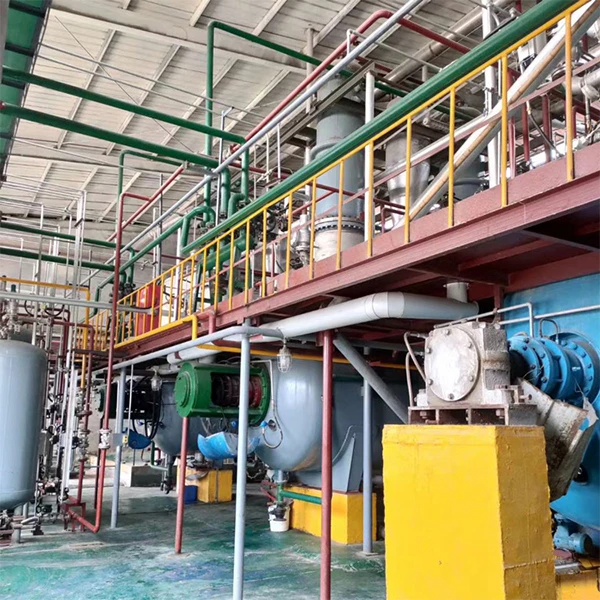The Role of HPMC Suppliers in Modern Industries
Hydroxypropyl methylcellulose (HPMC) is a versatile, non-ionic cellulose derivative widely used across various industries, including pharmaceuticals, food, construction, and personal care. As a crucial ingredient in these sectors, the role of HPMC suppliers has become increasingly important in ensuring product efficacy, regulatory compliance, and sustainability. This article delves into the significance of HPMC suppliers and how they contribute to the success of modern industries.
Understanding HPMC
HPMC is a white, odorless powder that is soluble in cold water but insoluble in organic solvents. Due to its unique chemical properties, HPMC functions as a thickener, binder, stabilizer, film former, and emulsifier, making it an essential component in numerous applications. For instance, in the pharmaceutical industry, HPMC is utilized in drug formulations for controlled release, enhancing bioavailability and patient compliance. In the food sector, it acts as an additive to improve texture and shelf life, while in construction, it is used in tile adhesives and emulsions to enhance workability.
The Importance of HPMC Suppliers
HPMC suppliers play a pivotal role in manufacturing and distributing this critical component. Their responsibilities extend beyond merely providing raw materials; they also ensure the quality, consistency, and safety of the products they deliver. This is particularly important in regulated industries like pharmaceuticals, where compliance with Good Manufacturing Practices (GMP) and other regulatory standards is essential.
1. Quality Assurance Established HPMC suppliers invest heavily in research and development to produce high-quality materials that meet the specific needs of their customers. They conduct rigorous testing to ensure that their products adhere to international standards, thereby guaranteeing that end-users can trust the safety and efficacy of the formulations they create.
hpmc supplier

2. Tailored Solutions Different industries have diverse requirements for HPMC. A reliable supplier will offer customized solutions, adjusting the viscosity, gelation temperature, and other properties of HPMC according to client specifications. This flexibility allows companies to optimize their formulations and improve final product performance.
3. Supply Chain Management HPMC suppliers often facilitate a smooth supply chain, ensuring timely delivery and availability of products. This is particularly crucial for manufacturers who rely on just-in-time inventory systems to maintain production efficiency. A disruption in the supply of HPMC could lead to significant delays and increased costs, making reliable suppliers indispensable.
Sustainability and Innovation
As sustainability becomes a focal point in manufacturing, HPMC suppliers are also exploring eco-friendly alternatives and sustainable sourcing practices. Many are engaged in producing biodegradable variations of HPMC or utilizing renewable resources in their manufacturing processes. This commitment to sustainability not only appeals to environmentally conscious consumers but also positions companies favorably in a market that increasingly prioritizes green practices.
Moreover, innovation continues to drive the HPMC market forward. Suppliers are investing in developing new grades of HPMC that meet emerging needs and applications, such as those in the medical field where biocompatibility is crucial. By collaborating with research institutions and industries, suppliers can stay ahead of trends and foster technological advancements.
Conclusion
In conclusion, HPMC suppliers play an indispensable role in today’s industries, providing high-quality, customizable products that meet a wide array of needs. Their contribution to quality assurance, tailored solutions, supply chain management, and sustainability initiatives underscores their importance in the global market. As industries evolve and new challenges arise, HPMC suppliers will continue to innovate and adapt, ensuring they remain key partners in driving progress across various sectors. The symbiotic relationship between suppliers and manufacturers ultimately enhances product quality and fosters growth in modern economies.
-
Rdp Powder: Key Considerations for Wholesalers in the Building Materials IndustryNewsJul.08,2025
-
Key Considerations for Wholesalers: Navigating the World of Hpmc - Based ProductsNewsJul.08,2025
-
Hpmc Detergent: Key Considerations for WholesalersNewsJul.08,2025
-
Key Considerations for Wholesalers: China Hpmc For Tile Adhesive, Coating Additives, Concrete Additives, and MoreNewsJul.08,2025
-
Crucial Considerations for Wholesalers: Navigating the World of Construction MaterialsNewsJul.08,2025
-
Key Considerations for Wholesalers Sourcing Additive For Cement, Additive For Concrete, Additive For Putty from Additive Manufacturer Shijiazhuang Gaocheng District Yongfeng Cellulose Co., Ltd.NewsJul.08,2025




